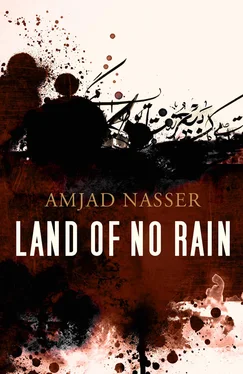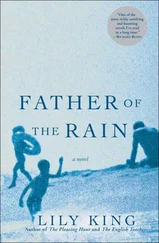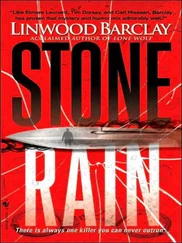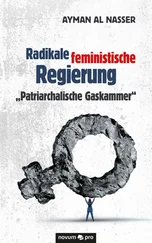Nasser Amjad - Land of No Rain
Здесь есть возможность читать онлайн «Nasser Amjad - Land of No Rain» весь текст электронной книги совершенно бесплатно (целиком полную версию без сокращений). В некоторых случаях можно слушать аудио, скачать через торрент в формате fb2 и присутствует краткое содержание. Год выпуска: 2014, Издательство: Bloomsbury Qatar Foundation Publishing, Жанр: Современная проза, на английском языке. Описание произведения, (предисловие) а так же отзывы посетителей доступны на портале библиотеки ЛибКат.
- Название:Land of No Rain
- Автор:
- Издательство:Bloomsbury Qatar Foundation Publishing
- Жанр:
- Год:2014
- ISBN:нет данных
- Рейтинг книги:4 / 5. Голосов: 1
-
Избранное:Добавить в избранное
- Отзывы:
-
Ваша оценка:
- 80
- 1
- 2
- 3
- 4
- 5
Land of No Rain: краткое содержание, описание и аннотация
Предлагаем к чтению аннотацию, описание, краткое содержание или предисловие (зависит от того, что написал сам автор книги «Land of No Rain»). Если вы не нашли необходимую информацию о книге — напишите в комментариях, мы постараемся отыскать её.
Land of No Rain — читать онлайн бесплатно полную книгу (весь текст) целиком
Ниже представлен текст книги, разбитый по страницам. Система сохранения места последней прочитанной страницы, позволяет с удобством читать онлайн бесплатно книгу «Land of No Rain», без необходимости каждый раз заново искать на чём Вы остановились. Поставьте закладку, и сможете в любой момент перейти на страницу, на которой закончили чтение.
Интервал:
Закладка:
There were several secret organisations that were active. Some of them concentrated on trying to assassinate the Grandson, without notable success, while others tried to bring about a popular revolution and organise civil disobedience campaigns, but they didn’t succeed either, because the situation in the country was stable, security was under control thanks to the hidden forces keeping watch, and living conditions were reasonable for most people, perhaps better than elsewhere in your troubled part of the world. Why should they rise up against the Grandson and the status quo? For freedom? To express themselves? For democracy? To take part in government? These were imported ideas, according to the phrase favoured in the local press and media. The men of religion urged the common people to obey their rulers. It was a religious duty prescribed in the Book. That’s what they preached at Friday prayers and on feast days, when the Grandson made sure he was in the front row in his brocade gown with his ruddy face. But that didn’t stop the formation of secret associations that were hostile to the establishment and vented their wrath at the Grandson and his corrupt coterie, as they liked to put it. In one of the many attempts to assassinate the Grandson, the commander of his guards was killed: Roula’s father. It happened a year or more after you met her. The standard of living of Roula’s family didn’t change after the head of the family was assassinated, because the Grandson maintained all her father’s privileges just as they were while he was alive, as well as awarding him the new honorary status of an officer who had fallen in the line of duty. The death of her father was an earthquake that traumatised Roula. Her attachment to her father was unequalled. The first unfortunate repercussion of his assassination on your relationship was that she held you indirectly responsible for what had happened. She didn’t hold you personally responsible, but she said that the ‘poisonous ideas’ that you parroted were responsible for the murder of her father (‘parroted’ was precisely the word she used, which was insulting to your youthful pride). At the time you weren’t yet involved in any organised activity, and the organisation you would later join was not the one that made the failed attempt to assassinate the Grandson. It was another, similar organisation that thought in the same way and repeated similar slogans. But one of the good repercussions of her father’s death (if one may use such an inappropriate expression) was that you started to meet more often, and almost overtly. In fact, maybe it was that horrific event which paved the way for what would follow. Khalaf was close to your relationship. You happened to meet in his presence several times, or you would entrust your friend who hated books with the task of conveying messages to her because you were busy with something else. By that time you had joined a secret organisation that was called To Work, not because a book with a similar name was part of its ideological literature, but because it believed in deeds rather than words. Theorising did not play a prominent role in the culture of your organisation. In that respect it made do with a few books and leaflets printed abroad and smuggled to you in complicated ways. These were your inexhaustible and unquestionable gospels, the teachings of the prophets of revolution with their thick grey beards and their long hair.
Theorising, in the opinion of your leaders, was a game, a pastime for the petty bourgeoisie, just like ‘joining the ranks of the masses’, the policy pursued by the largest organisation in the arena. Your organisation was not against the masses; in fact it insisted on speaking in their name, but it believed that an organised elite could bring about change and ‘skip stages’ rather than wait for objective circumstances to mature. In your opinion revolutionary violence was necessary to push forward the creaky wheel of history.
How long did your relationship last? Not long compared with all the water that has since flowed under the bridge. Less than four years. From the moment you told her ‘I love you’ without prior warning, to the moment when you promised her you would be reunited as soon as possible. You were telling her the truth, because you were in love and could not bear to be apart, and also because all you could see at the time was the moment and your immediate surroundings. Because how could you have known, when you promised to stay close to her, that your exile would last twenty years and that the fates conspiring in the heart of future time would send winds to carry your sail further and further away, right to the edge of the dark waters? But the affairs of the heart, and maybe of memory, are not measured in days. They have another scale that you don’t quite know. So her image kept pursuing you. If it ever slipped your mind, it would soon reappear. At least in the first years of your journey. Every female face you saw, every gait, every glance, every voice, every hand gesture, every dress and shawl and pair of shoes and pair of underwear, every bottle of perfume, powder compact and stick of lipstick you automatically compared with her face, her gait, the way she turned her head, her husky voice, the way she moved her hands, her dresses and shawls and underwear, her perfumes and make-up. Even the smells revealed only in moments of passionate physical contact were pleasant or repellent to the extent that they were similar to or different from the smells of her naked body. They were the references that found a home in your memory and laid a foundation for love and desire. The references that became a benchmark, that started to operate, by a mechanism of their own and independently of your consciousness, with every woman with whom you later had a relationship. Even after you married the woman you met on the Island of the Sun. When you kiss a woman you want to taste the wild honey of the first saliva you tasted. When you embrace you want to put your hand around that waist you used to encircle with just one hand. When you move close to her neck you want to detect the faint smell of sweat and jasmine combined. When you put your hand on her breasts, you want to feel them tremble like a brace of trapped partridges. When you lick her navel it has to reveal childhood secrets. When you go even lower, you expect the smell of marjoram. When you enter her, you prepare yourself, midway, for the pulsations and contractions of her vagina, for the way she held her breath as though she were about to die. You don’t know why these images, these smells and tactile sensations have been filed away so carefully in your head. You don’t know if they were so divine, so exciting and normative at the time. But that’s how they became. Your marriage to the Island of the Sun woman was not just a matter of solidarity in the struggle and admiration for her experience and what she said. There was also emotion and desire. Admiration and desire for a body. But why, whenever you slept with her, did you imagine you were sleeping with the woman whose vulva smelled of marjoram and basil and freshly crushed wheat? Was it the influence of the Song of Solomon? But no, words have no smells or textures unless they have some reference in one’s memory. Why was I enthralled by the ordinary in Roula and thought it such a wonder: her fingers, her feet, her neck, the many freckles on her shoulder blades, the way she opened her mouth and smiled, her husky voice, the expressive power of her dimples? Her shawl when it slipped off her shoulder. Her dress riding above her knees when she sat down. Her tense thumbs slowly removing her underwear. The repeated kisses after making love, lying skin to skin before you fell asleep together, while you slept and after you slept. What disturbed you most were the kisses that followed making love with any other woman; you usually did that out of a sense of duty or courtesy. Complete fusion, the melding of bodies and beyond bodies, getting under the skin: that happened only with Roula. Was it complete emotional and physical fulfilment? Or does the extraordinary power of nostalgia exaggerate what was minor and erase the margins, the peripheral, the accompanying symptoms, while preserving the stable essence, an elixir that might be of nostalgia’s own making, impervious to the ravages of time? Nostalgia, that disease or form of ignorance, to use the expression of a writer who examined it in its many elusive guises and did not come to any clear conclusion. You have suffered that disease. Here’s an amusing practical example. You love mint tea. Everywhere you have lived there was tea, but there wasn’t always mint, especially in the City of Red and Grey. But nonetheless you would contrive to obtain a sprig of mint, stealing it from parks that cultivate herbs and plants that come from hot countries as well as cold. You would make tea your mother’s way: pour bottled mineral water into a teapot (because tap water is too hard). Put some sugar in, at least a cup of sugar when the water starts to warm up. Before it boils, throw a handful of loose tea into the pot. Bring everything to the boil. Turn the stove off. Lift the lid and put the sprig of mint in. Leave the tea to brew a while. Put the pot on a tray next to an empty glass. Take the tray close to the window where your desk is. Sit behind the desk. Light a cigarette. Pour the tea into the empty glass. Sip it once, twice. Take a puff of your cigarette. But the mint tea that you’ve prepared, although you’ve made it properly, doesn’t match the tea of your memory.
Читать дальшеИнтервал:
Закладка:
Похожие книги на «Land of No Rain»
Представляем Вашему вниманию похожие книги на «Land of No Rain» списком для выбора. Мы отобрали схожую по названию и смыслу литературу в надежде предоставить читателям больше вариантов отыскать новые, интересные, ещё непрочитанные произведения.
Обсуждение, отзывы о книге «Land of No Rain» и просто собственные мнения читателей. Оставьте ваши комментарии, напишите, что Вы думаете о произведении, его смысле или главных героях. Укажите что конкретно понравилось, а что нет, и почему Вы так считаете.












